13 Safe Dividend Stocks to Buy
Dividend growth, not yield, typically drives outperformance. Thus, you're getting more than just security from these safe dividend stocks.


Profit and prosper with the best of Kiplinger's advice on investing, taxes, retirement, personal finance and much more. Delivered daily. Enter your email in the box and click Sign Me Up.
You are now subscribed
Your newsletter sign-up was successful
Want to add more newsletters?

Delivered daily
Kiplinger Today
Profit and prosper with the best of Kiplinger's advice on investing, taxes, retirement, personal finance and much more delivered daily. Smart money moves start here.

Sent five days a week
Kiplinger A Step Ahead
Get practical help to make better financial decisions in your everyday life, from spending to savings on top deals.

Delivered daily
Kiplinger Closing Bell
Get today's biggest financial and investing headlines delivered to your inbox every day the U.S. stock market is open.

Sent twice a week
Kiplinger Adviser Intel
Financial pros across the country share best practices and fresh tactics to preserve and grow your wealth.

Delivered weekly
Kiplinger Tax Tips
Trim your federal and state tax bills with practical tax-planning and tax-cutting strategies.

Sent twice a week
Kiplinger Retirement Tips
Your twice-a-week guide to planning and enjoying a financially secure and richly rewarding retirement

Sent bimonthly.
Kiplinger Adviser Angle
Insights for advisers, wealth managers and other financial professionals.

Sent twice a week
Kiplinger Investing Weekly
Your twice-a-week roundup of promising stocks, funds, companies and industries you should consider, ones you should avoid, and why.

Sent weekly for six weeks
Kiplinger Invest for Retirement
Your step-by-step six-part series on how to invest for retirement, from devising a successful strategy to exactly which investments to choose.
Most income investors choose dividend stocks by looking at a company's current dividend yield and history of payments. They base their choices on historical trends and hope the gravy train of dividends will keep chugging along – even when the economy turns south. But let's face it: Past is not always prologue.
That's why, if you're in the search for safe dividend stocks, you need to look beyond yield.
Reality Shares developed a system called DIVCON (short for dividend condition) that uses several factors to pick safe dividend stocks, after discovering that dividend growth – not yield – drives outperformance.
DIVCON's factors to assess a company's dividend health include expected dividend growth, free cash flow-to-dividends, earnings per share (EPS) growth, recent dividend actions and Altman Z-score (which gauges the likelihood a company is going bankrupt). Companies are given a DIVCON score between 1 and 100, then assigned a DIVCON rating between 1 (most likely to cut) and 5 (most likely to increase). The implication? The highest scorers should be among the safest dividend stocks.
They also could be among the best performers.
According to the exchange-traded fund provider, S&P 500 companies that grew or initiated dividends between 1972 and 2017 returned 9.98% on average annually compared to 7.35% for those that didn't raise their payouts. And for non-payers, the return was a much slimmer 2.54%. The top group also saw less volatility.
Moreover, Reality Shares back-tested DIVCON and discovered that companies with high scores continued to raise their dividends even through major market declines, such as during the tech bubble of 2000 and financial crisis of 2008. Low-rated DIVCON stocks typically cut their dividends during these downturns.
That brings us to the safest dividend stocks to buy, as rated by DIVCON. Every stock on this list earns the highest DIVCON rating of 5. We've further culled the list down to 13 stocks that have estimated dividend growth over the next 12 months of at least 10%.
Data is as of Oct. 20. Dividend yields are calculated by annualizing the most recent payout and dividing by the share price. DIVCON data is as of Aug. 31. Stocks are listed in reverse order of estimated dividend growth.
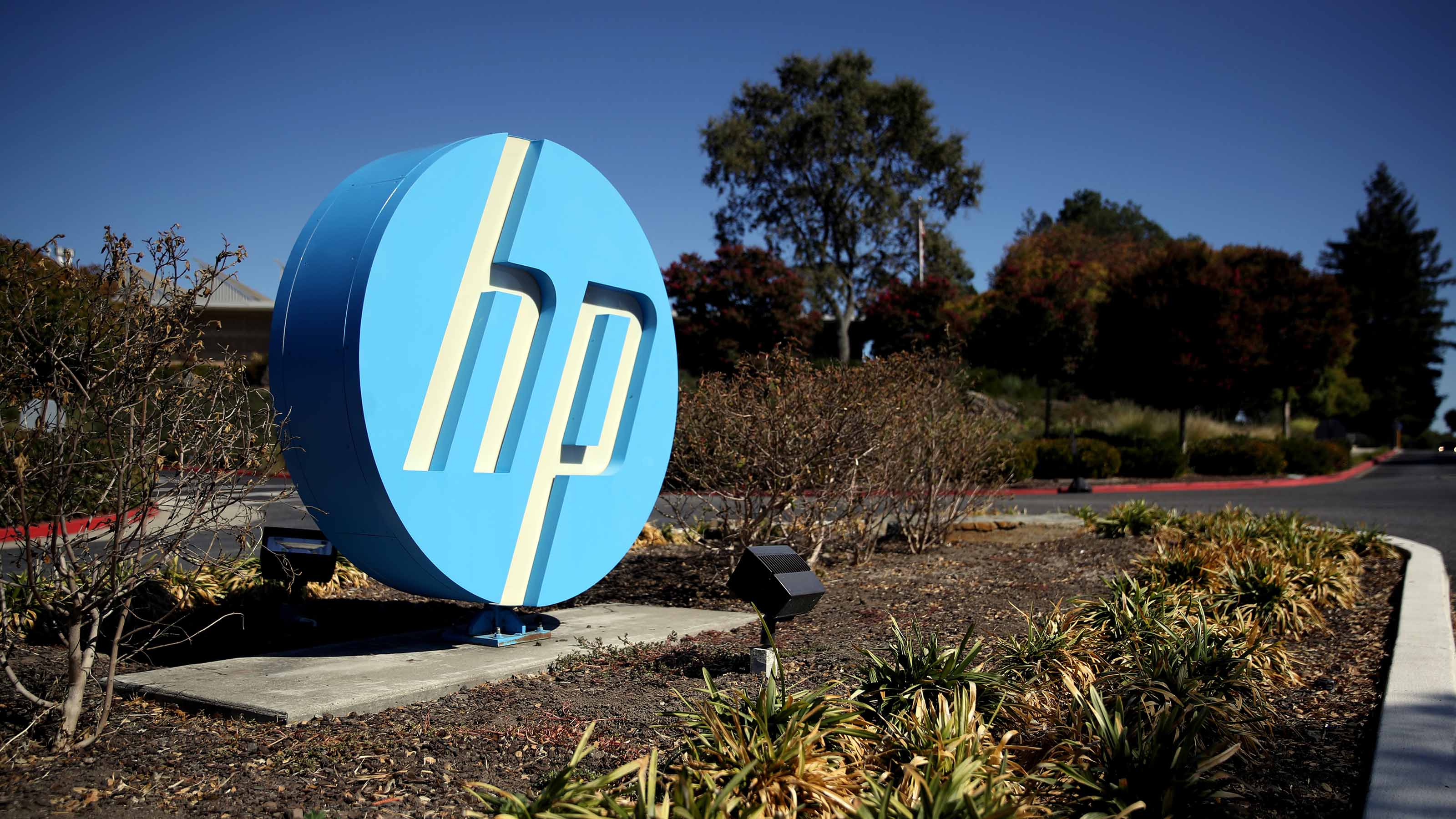
HP
- Market value: $33.0 billion
- Dividend yield: 2.7%
- Estimated dividend growth over the next 12 months: 10%
- DIVCON rating: 5
HP (HPQ, $28.59), not to be confused with sister company Hewlett Packard Enterprise (HPE), houses the personal computer (PC) and printing businesses of one of Silicon Valley's original granddaddies, the former Hewlett-Packard. When Hewlett-Packard was split up in 2015, it gave birth to HP and HPE, the latter of which focuses on servers, the cloud, storage, software and other services.
While HP books more revenue from selling PCs – commanding about two-thirds of the top line – it accounts for half of operating profits. The printing business is profitable, especially in selling supplies. And over the years, HP has been holding its own in the PC market, although the long-term outlook is softer as mobile devices increasingly are used for computing.
In the third quarter, HP's revenue rose 7% to $15.3 billion from a year ago but it was due to strength in printing since the PC business was flat, says Argus Research analyst Jim Kelleher (Buy).
Nevertheless, the company generated "strong" free cash flow (FCF) – the cash remaining after a company has paid its expenses, interest on debt, taxes and long-term investments to grow its business – in the quarter. And at a recent analyst day, HPQ announced it would juice its dividend by more than 28% to $1 per share.
Longer term, HP will benefit from the current "hybrid model" for working, learning, collaborating and socially interacting as a "permanent" state of affairs for consumers, businesses and institutions, Kelleher says. "In this new normal, HP appears well positioned" with its PC and printing businesses, he adds.
HPQ has earned its place among these safe dividend stocks on the back of robust earnings-per-share growth, a high free cash flow-to-dividend ratio of 602.7% and a perfect five-year dividend score of 10. (Dividend score starts at 5, and 1 point is added for every year dividends are increased, meaning HPQ raised its dividends every year in the last five years.)
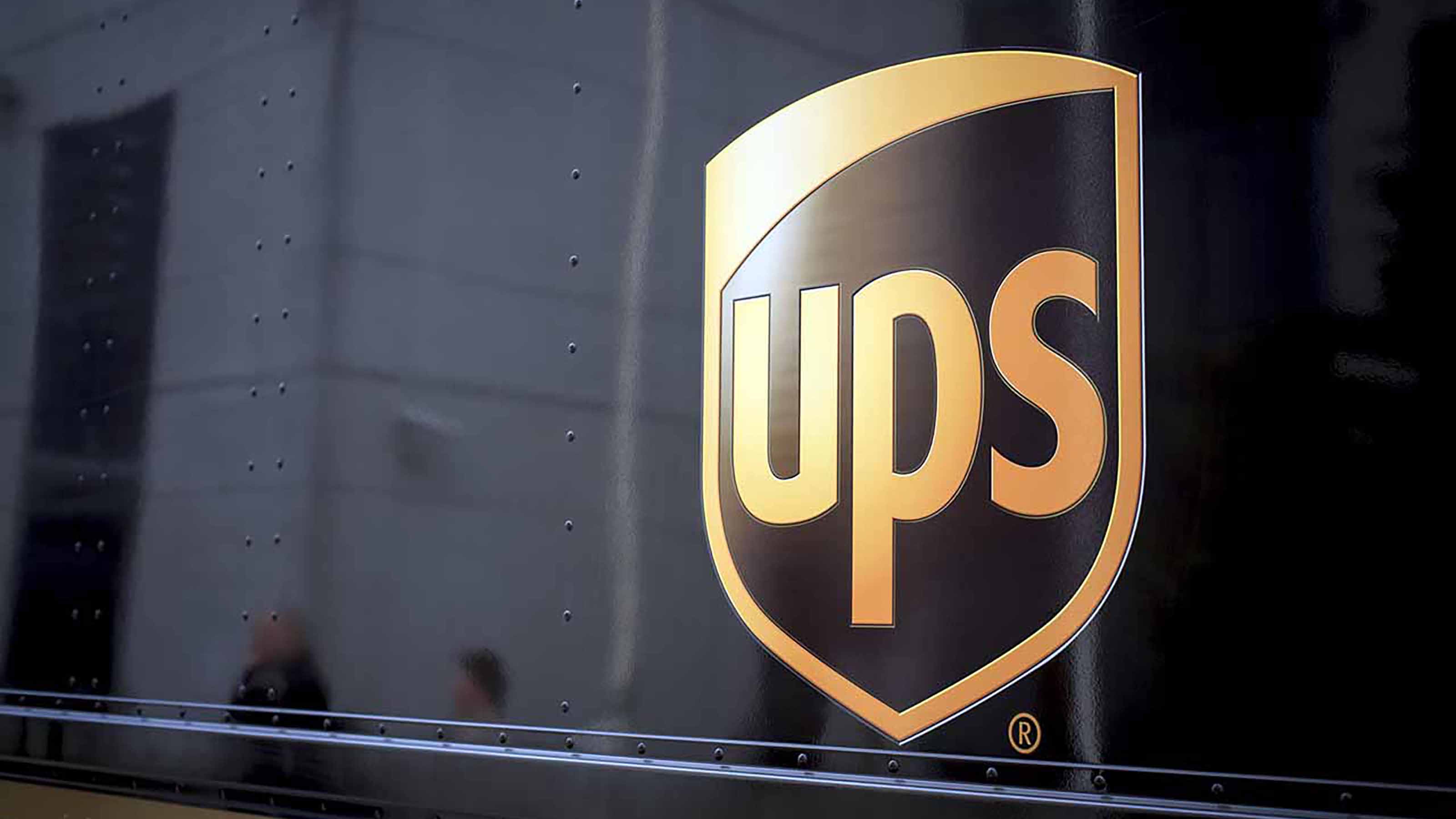
United Parcel Service
- Market value: $170.1 billion
- Dividend yield: 2.1%
- Estimated dividend growth over the next 12 months: 10%
- DIVCON rating: 5
When it comes to shareholder payouts, United Parcel Service (UPS, $195.27) delivers as one of the market's safe dividend stocks.
Consider that as the pandemic raged in 2020, the company paid $3.6 billion in dividends, up 5.2% on a per-share basis from the prior year. In the first half of 2021, UPS gave shareholders $1.7 billion in dividends – it helped that the company generated free cash flow of $6.8 billion during this period, up 75% from the first six months of 2020.
DIVCON's estimated dividend growth is 10% for UPS, while earnings per share growth clocks in at 120.6%, plus a five-year dividend score of a perfect 10. UPS's Altman Z-score is 4.6 (3 or above signals strong financial standing).
In February, UPS raised its quarterly dividend by 1%. The company made it clear that it takes dividend payouts seriously. "Commitment to the dividend is one of UPS's core principles and a hallmark of the company's financial strength," CEO Carol Tomé says. Starting in 2022, UPS expects to pay out in dividends 50% of the prior year's adjusted net income, she adds.
In the second quarter, UPS reported that revenue rose 14.5% year-over-year to $23.4 billion, while earnings per share soared 50% to $3.05. The company benefited from an increase in deliveries as people moved more of their shopping online during the pandemic, although there is a concern that this trend will moderate as the economy continues to reopen. Nevertheless, UPS and FedEx (FDX) dominate the U.S. parcel shipping market.

Evercore
- Market value: $6.5 billion
- Dividend yield: 1.7%
- Estimated dividend growth over the next 12 months: 10.4%
- DIVCON rating: 5
Evercore (EVR, $163.18) is an independent investment banking and advisory firm whose wealth management division had $11 billion in assets under management as of June 30. For the five years ended 2020, Evercore said it grew adjusted EPS by a compound annual growth rate (CAGR) of 24% and adjusted net revenue by 13%.
Zacks Equity Research has a Buy rating on the safe dividend stock. The firm noted that Evercore has an "impressive" history of reporting higher-than-expected earnings, particularly in the last four quarters.
"Given the favorable macroeconomic backdrop and improving market conditions, Evercore's initiatives to fortify the investment banking segment is a strategic fit," Zacks says. Resilient market conditions, low interest rates and widespread availability of financing should keep its M&A momentum "elevated" in the upcoming quarters, they add.
Also, Evercore's efforts at increasing the number of advisory services clients as well as expanding its business geographically have led to "solid revenue growth." Given the company's strong liquidity position, Zacks says EVR has a "lesser likelihood" of defaulting on its debt if the economy goes south.
Zacks does caution against two potential headwinds: escalating expenses on rising employee compensation and benefits which could hurt its bottom line and a decrease in assets under management due to foreign exchange fluctuations that may hurt fee income.
DIVCON pegs Evercore's dividend growth rate at 10.4%, FCF-to-dividend coverage at 818% and earnings per share growth of 107.6%. Solidifying its spot among safe dividend stocks: EVR in April announced an 11.5% hike to its quarterly dividend.

Stanley Black & Decker
- Market value: $30.6 billion
- Dividend yield: 1.7%
- Estimated dividend growth over the next 12 months: 10.5%
- DIVCON rating: 5
Best known for its household power tools, Stanley Black & Decker (SWK, $187.57) also sells industrial equipment and offers security services. In August, the company announced an acquisition that would expand its product line globally: SWK is buying the remaining 80% stake in MTD Holdings it doesn't already own, for $1.6 billion in cash.
MTD manufactures commercial and personal lawn mowers and other lawn maintenance equipment under the brands Troy-Bilt, Rover, Cub Cadet, Remington, Yard Machines, Columbia, Wolf-Garten and Robomow – a robotic mower that functions like a Roomba for lawns.
The combined company boasts annual revenue of $17 billion ($2.5 billion for MTD and $14.5 billion for Stanley Black & Decker in 2020). UBS analyst Markus Mittermaier says in a recent report that the acquisition will be "highly" accretive to earnings – and management's forecast of an additional $1-plus per share in profits by 2025 is "conservative." Moreover, he says, the stock is "cheap."
The analyst reiterated his Buy rating on SWK after the company reported robust second-quarter earnings that beat Wall Street's expectations. Stanley Black & Decker, he adds, is trading near its 10-year low versus the S&P 500, based on consensus price-to-earnings for the next 12 months. He expects the stock to snap back to historical norms.
Deutsche Bank analyst Nicole DeBlase also has a Buy rating on Stanley Black & Decker. In a recent report, she notes that management has been telegraphing its plans to acquire the rest of MTD for some time, and "it is good to see the associated EPS accretion locked and loaded for 2022 estimates."
There's a lot to like about one of Wall Street's safest dividend stocks. The company's EPS growth clocks in at 66.9%, with a DIVCON five-year payout record of 10 and an Altman Z-score of 6.0 – signaling a very strong financial position.

Hershey
- Market value: $37.0 billion
- Dividend yield: 2.0%
- Estimated dividend growth over the next 12 months: 11.1%
- DIVCON rating: 5
Hershey (HSY, $180.19) has a sweet story to tell when it comes to candy manufacturing. It not only creates the iconic chocolate bars that bear its name, but this legendary American brand also manufactures goodies including Reese's, Jolly Rancher, Almond Joy, Cadbury, Kit Kat, Heath, Rolo, Twizzlers,Bubble Yum, Pirate's Booty and others. No wonder it is one of the largest chocolate manufacturers in North America.
The company is headquartered in Hershey, Pennsyvlania, where attractions evoke the essence of Willy Wonka: Street lamp posts are shaped in a Hershey's kiss; there's a museum and kid's destination called Hershey's Chocolate World; The Hotel Hershey's spa offers whipped cocoa baths and chocolate fondue body wraps; a theme park called Hershey Park offers thrill rides, among others.
Dividend investors, however, should favor Hershey for equally delicious reasons. It has a DIVCON five-year dividend score that's a perfect 10 (indicating five increases in five years) and an out-of-this-world Altman Z-score of 7.0, indicating high financial strength. Plus, when it comes to safe dividend stocks, this one hiked its quarterly payout by 12.1% in July.
It didn't hurt that the company's second-quarter earnings and revenue exceeded the consensus expectations of analysts. Sales lifted as people consumed more candy at home, while revenues from its away-from-home segment and international markets improved as well, according to Zacks Equity Research.
Hershey's recent acquisition of Lily's Sweets, which specializes in better-for-you confections, fits in with the company's strategy of expanding its business in this category. Management expects to generate gains from this acquisition – contributing to its improved 2021 net sales forecast of 6% to 8%, up from 4% to 6% previously.

Lowe's
- Market value: $155.8 billion
- Dividend yield: 1.4%
- Estimated dividend growth over the next 12 months: 23.1%
- DIVCON rating: 5
The pandemic is heightening the allure of making homes more functional and comfortable as folks work from home, and it should continue to give a lift to the home improvement industry. Lowe's (LOW, $225.01), the second largest home improvement retailer in the world, benefits from this trend.
Lowe's is stellar among safe dividend stocks: DIVCON's estimated dividend growth of 23.1%, a free cash flow-to-dividend ratio of 330.4%, an Altman Z-score of 4.4, EPS growth of 34.5% and a perfect five-year dividend score of 10.
Morningstar analyst Jaime Katz says that when CEO Marvin Ellison took over in 2018, Lowe's embarked on an overhaul of its top management, merchandising and boardroom ranks. Ellison was the former CEO of J.C. Penney and also a long-time executive at Home Depot (HD).
The restructuring included shedding the company's Orchard Supply brand and Mexican assets, which means that increased capital expenditures will focus on areas that should lead to more efficient use of working capital.
Katz notes that Lowe's investments in its information technology platform and distribution network further differentiates it from the rest of its retail peers and becomes another competitive edge. The company's size also gives it "significant" bargaining leverage with vendors for products, ads, rent and others, she adds.
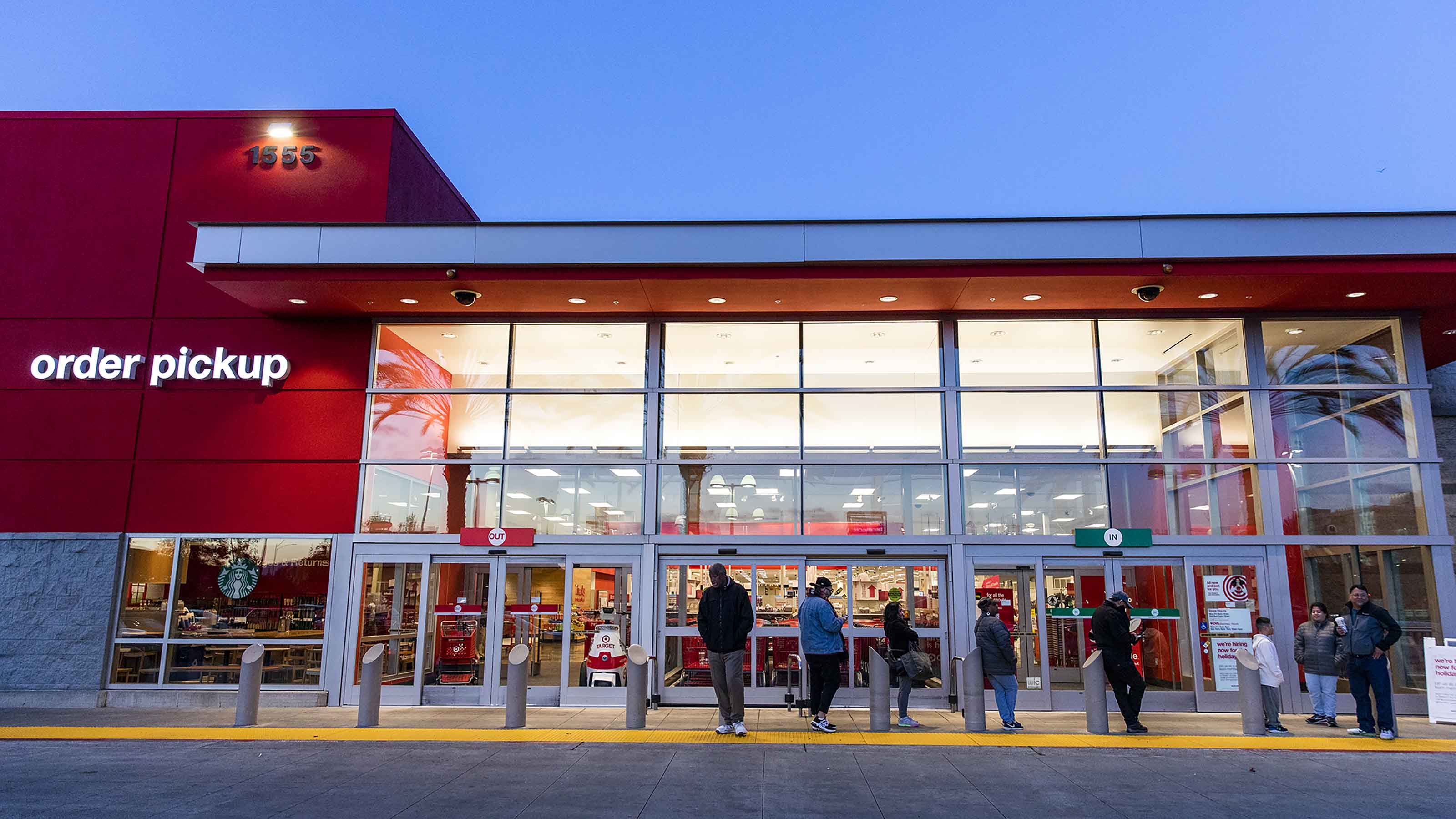
Target
- Market value: $123.1 billion
- Dividend yield: 1.4%
- Estimated dividend growth over the next 12 months: 25.9%
- DIVCON rating: 5
Of all the general merchandise big-box retailers, Target (TGT, $251.83) arguably is the one brick-and-mortar chain that has captured the most mindshare of millennials and urban hipsters. In the last five years, the stock has rewarded investors handsomely as well, up 260%. The average recommendation of the 30 analysts following TGT tracked by S&P Global Market Intelligence is Buy – and with strong conviction.
Independent research firm CFRA is one of those with a Buy rating on Target, as well as a 12-month price target of $300. The firm believes Target can continue to "execute on various initiatives intended to deliver stronger growth." It is expecting "strong results from a robust" back-to-school shopping season and in categories that should see a surge in demand as the economy continues to reopen – such as beauty, apparel, luggage and travel.
While supply chain constraints and inflation worries remain, CFRA believes that Target's inventory levels are solid – up 26% year-over-year – and it has "levers" to manage costs to keep offering products at good values.
Notably, Cowen analyst Oliver Chen says that the reopening of the economy means Fall 2021 represents "one of the biggest back-to-school and back-to-work seasons we'll ever see in our lifetimes."
According to Reality Shares, Target scores a maximum of 10 on its five-year dividend record. Moreover, TGT's Altman Z-score is 4.9.

Ally Financial
- Market value: $20.1 billion
- Dividend yield: 1.8%
- Estimated dividend growth over the next 12 months: 31.6%
- DIVCON rating: 5
Ally Financial (ALLY, $55.81), formerly GMAC but now independent of General Motors (GM), is one of the largest auto financing companies in the U.S. It also operates an online bank (Ally Bank), offers insurance, operates a trading platform (Ally Invest), and provides mortgage, consumer and corporate loans.
The company has enjoyed rising demand across its business segments and sits on a solid balance sheet, with $13.1 billion in cash and cash equivalents at the end of the third quarter of 2021.
In each of the last six quarters, Ally Financial has reported earnings that have surpassed Wall Street expectations. Another tidbit: Its forward price-to-earnings ratio is 8.4, which is well below the S&P 500's 21. In other words, ALLY is also one of the cheapest among safe dividend stocks.
UBS has a Buy rating on the stock. Analyst Manu Srivareerat writes in a report that "the combination of resilient NIM (net interest margin), positive operating leverage and contained credit costs should result in substantial profitability expansion and tangible book value accretion."
Piper Sandler analyst Kevin Barker has an Overweight (Buy) rating on Ally, calling it a "significant outperformer" over the past year. The company is "structurally more profitable" than it was before the pandemic began, due to "more pricing power in their deposit franchise" and thus the stock will be driven by the trajectory of its earnings.
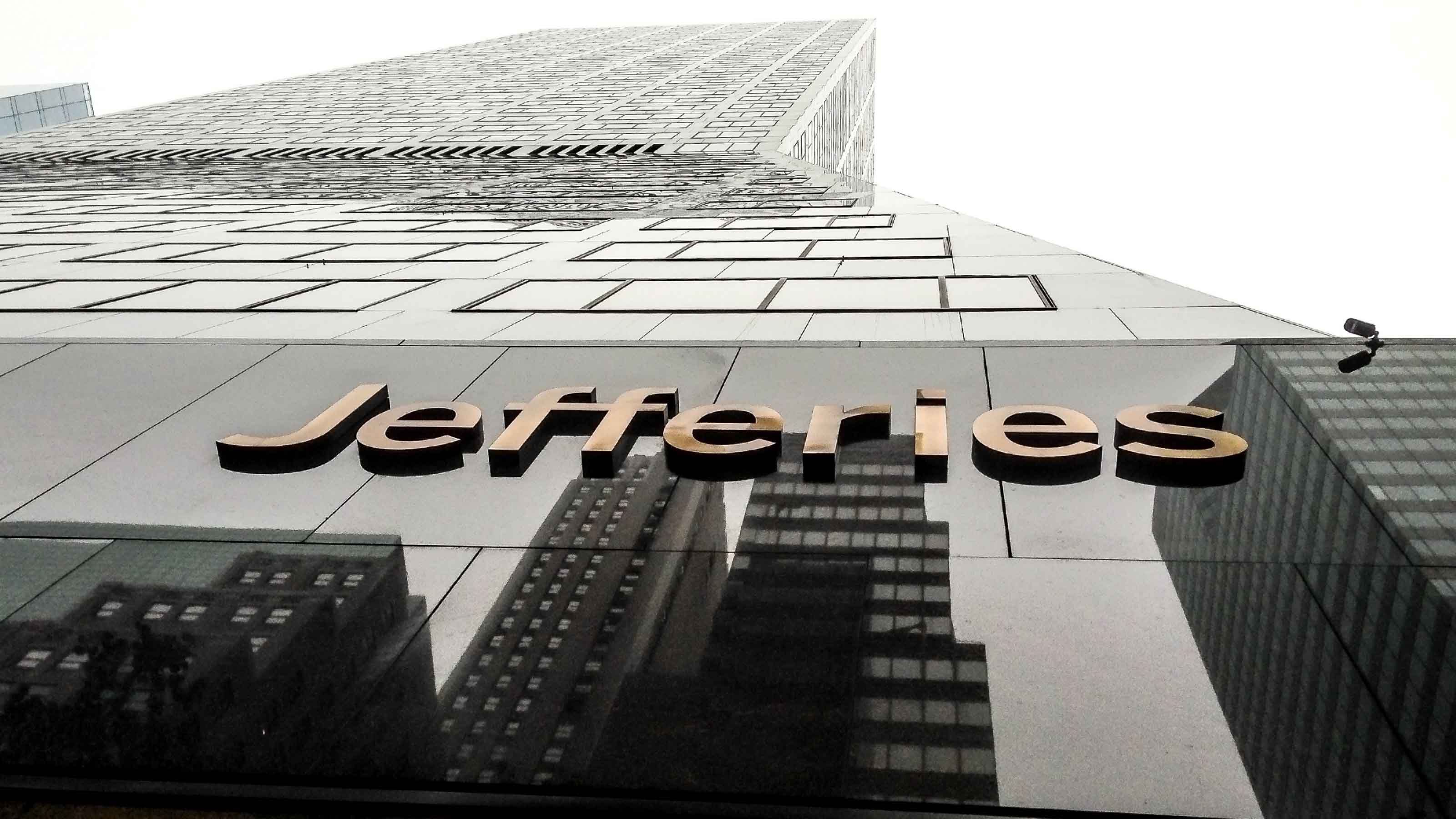
Jefferies Financial Group
- Market value: $10.3 billion
- Dividend yield: 2.4%
- Estimated dividend growth over the next 12 months: 50%
- DIVCON rating: 5
Jefferies Financial Group (JEF, $42.05) is a truly diversified investment bank. Its business encompasses investment banking and capital markets, commercial mortgage banking, asset management, online platform, foreign exchange trading, real estate and vehicle financing. Moreover, JEF is involved in businesses that include oil and gas exploration, auto dealerships, broadband services and gold and silver mining, according to Morningstar.
Business diversity did not detract the firm from delivering financially: Jefferies had a robust showing in the third quarter: net revenue of $1.65 billion, which was a record for a third quarter. It was up 19% from the same quarter in 2020, which itself hit a record as well for net revenue, the firm reported. Adjusted earnings came to $1.50 per share, up 40% year-over-year.
Buoyant DIVCON metrics help explain why Jefferies is on this list of safe dividend stocks: JEF's expected dividend growth is 50%, its FCF-to-dividend ratio is 1,395% and earnings per share growth arrives at 233%. The investment bank's dividend yield is 2.4%. Its five-year dividend history score is 9 – meaning it has raised dividends in four out of the last five years, including a 25% hike to its quarterly payout in June.
Another plus is that Jefferies prides itself on minimizing illiquid assets on its balance sheet; its trading inventory is liquid and low risk, according to the company's recent presentation to creditors. It has total assets of $52.2 billion.
The stock is trading near its 52-week high of $42.55, but the trailing 12-month price-to-earnings ratio of 7.0 remains well below the S&P 500 average of 28.6. And according to Morningstar, Jefferies is still trading below its fair value of $45.13.
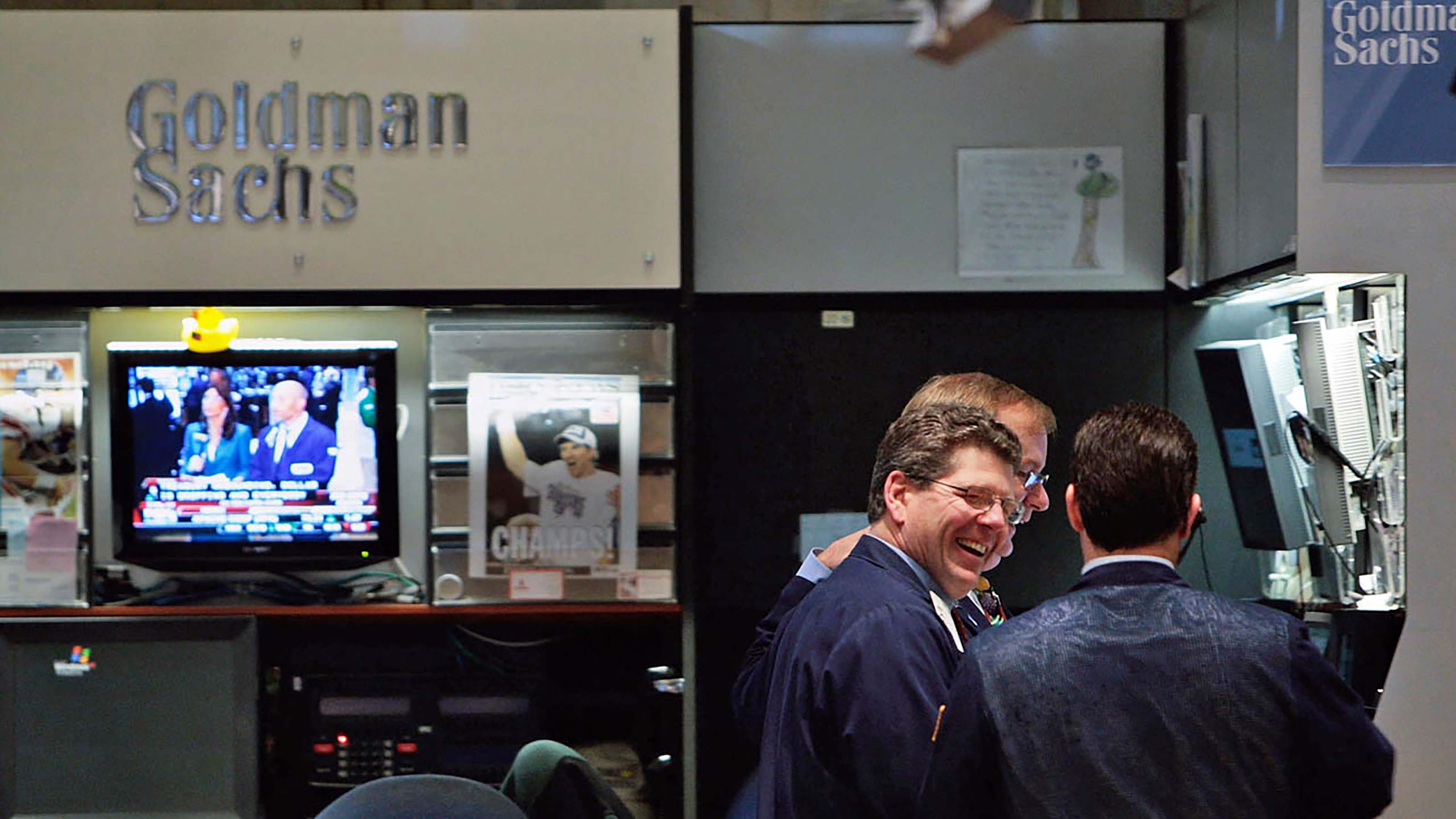
Goldman Sachs
- Market value: $137.5 billion
- Dividend yield: 1.9%
- Estimated dividend growth over the next 12 months: 58.9%
- DIVCON rating: 5
There's at least one reason why the 27 analysts that cover Goldman Sachs (GS, $407.89) are bullish on the stock: The storied investment bank has beat Wall Street's consensus earnings estimates three-quarters of the time in the last 12 quarters.
Reality Shares puts Goldman's estimated dividend growth at 58.9% – among the highest in its universe of safe dividend stocks. Free cash flow coverage of its dividend is an eye-popping 4,116%, while EPS growth is expected at 149.2%. The firm also has a solid cash position: $212 billion in cash and cash equivalents as of Sept. 30.
Goldman's game plan since early 2020 has been to increase revenue at its incumbent businesses by $2 billion to $3 billion, and new businesses by $1 billion to $2 billion, writes Morningstar analyst Michael Wong in a recent note.
The firm's latest moves certainly fit its vision: the $2.24 billion acquisition of GreenSky, a fintech company that offers home improvement and healthcare consumer loans, and $1.9 billion purchase of NN Investment Partners, an asset manager based in the Netherlands with $355 billion in assets under management.
The addition of NN will more than double Goldman's assets under management in Europe to more than $600 billion, Wong notes. With GreenSky, Goldman will now have point-of-sale financing and an "extensive" relationship with merchants and consumers, the analyst says. In the past few years, the firm entered the online consumer lending business and has inked credit card partnerships with companies including Apple (AAPL) and General Motors.
Wong also notes that an investment bank's "strong" reputation makes it more likely to get business. "The Goldman Sachs name has brand recognition that provides a competitive advantage for garnering investment banking deals and recruiting top talent," he says. Goldman often ranks in the top three for global equity underwriting and M&A advisory services, Wong adds.

Nexstar Media Group
- Market value: $6.4 billion
- Dividend yield: 1.9%
- Estimated dividend growth over the next 12 months: 92.7%
- DIVCON rating: 5
Nexstar Media Group (NXST, $153.42) is the largest TV broadcaster in the U.S., with 199 stations in 39 states including in the top 50 DMA (designated market area, or regions where Nielsen measures local TV viewing). Nexstar's stations reach 38% of U.S. TV households (82.5 million), the widest reach among TV station owners including the national broadcast networks.
The company is also aggressively growing its digital presence and launched a primetime national newscast, NewsNation, in September 2020. Nexstar calls its news coverage "fact-based, impactful and unbiased." It operates 120 local websites, more than 284 mobile apps and sees 94 million monthly unique visitors. The company just closed its acquisition of The Hill, a political news website. Nexstar says The Hill delivers "balanced political reporting."
Deutsche Bank analyst Connor Murphy has a Buy rating on the stock. In a recent note, he says that the company continues to benefit from the cyclical recovery in advertising, while its size gives it leverage in negotiations on retransmission consent fees and reverse compensation with broadcast networks. He adds that Nexstar has a "shareholder-friendly" capital allocation strategy.
The company reported a 24% year-over-year increase in net revenue for the second quarter, to $1.13 billion. Net income more than doubled to $199.8 million. Free cash flow arrived at $181.2 million, which was down from the year-ago period but up 111% from Q3 2019. TV ad revenue jumped 35% to $432 million.
Reality Shares gives Nexstar a 10 on the five-year dividend scorecard. EPS growth is 223.3%, while NXST's free cash flow-to-dividend ratio is a robust 474%.
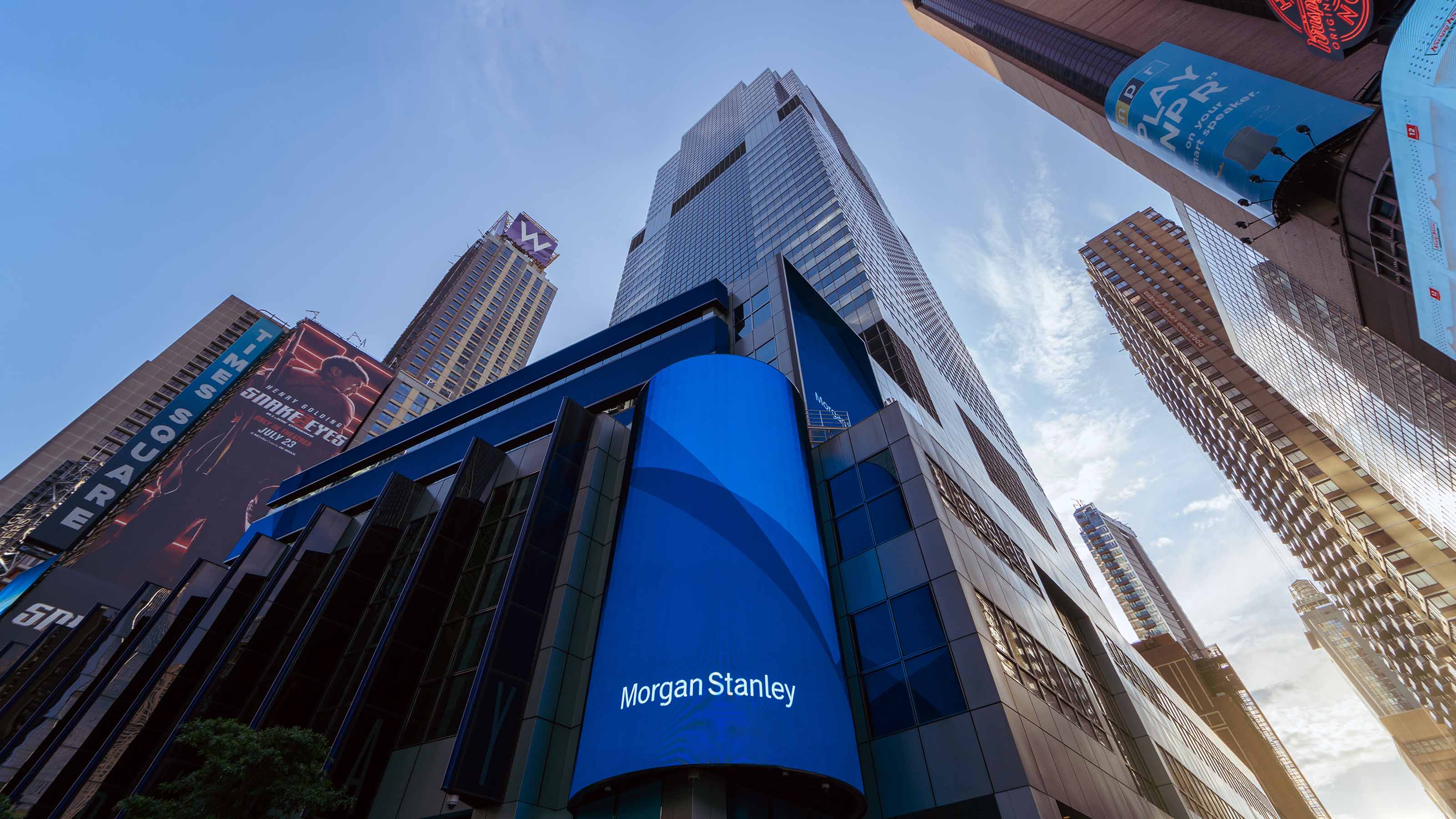
Morgan Stanley
- Market value: $181.1 billion
- Dividend yield: 2.8%
- Estimated dividend growth over the next 12 months: 100%
- DIVCON rating: 5
Morgan Stanley (MS, $100.66) is one of the world's top investment banks, known especially for its technology sector deals. The company is tilting towards wealth and investment management with the acquisitions of Smith Barney, E-Trade Financial and Eaton Vance, David Konrad, an analyst at Keefe, Bruyette & Woods, wrote in a recent note.
"Morgan Stanley has undergone one of the largest business transformations we have seen in two decades for large-cap financials, meaningfully changing its profile from a company with a more volatile stock and below-peer returns to peer-leading profitability and more visible revenues," Konrad says. He as an Overweight rating on MS, which is the equivalent of a Buy
The analyst believes the following factors will lift the stock in the near term: cost savings and funding synergies from the E-Trade acquisition, strong client growth in wealth management, and $12 billion in expected share buybacks over the next four quarters. In addition, he expects two coming Fed rate hikes to buoy margins by 2 percentage points by the end of 2023.
Morgan Stanley also recently doubled its quarterly dividend to 70 cents per share, or a 2.8% yield. Konrad expects the dividend to increase to $1 per share in two years. The analyst has a price target of $115 on the stock.
As for its standing among safe dividend stocks, DIVCON pegs Morgan Stanley with a 288.5% free cash flow-to-dividend ratio, EPS growth of 35.6% and a five-year payout increase score of 9 (meaning it raised dividends in four out of the last five years).

MDC Holdings
- Market value: $3.6 billion
- Dividend yield: 3.3%
- Estimated dividend growth over the next 12 months: 2,465.8%
- DIVCON rating: 5
MDC Holdings (MDC, $50.37), the parent company of Richmond American Homes, is benefiting from several current macro-trends: historically low interest rates that have kept rates on mortgage loans low, rise in remote work, migration away from urban areas, millennials buying their first homes and baby boomers downsizing and relocating – amidst a limited resale inventory of homes.
From there, the homebuilder starts to differentiate itself from the pack. It focuses on affordability of homes, specifically targeting millennials and baby boomers. Its build-to-order model lets homebuyers customize their residences. It also limits its inventory of homes on speculation and targets a two- to three-year land supply.
MDC also pays a higher dividend than several of its homebuilding peers at 3.3%. The company has earned its place among safe dividend stocks, issuing a payout every year since 1994 and nearly doubling its dividend in the last five years. What's more, MDC's DIVCON five-year payout score is 10.
According to Reality Shares, MDC's earnings per share growth is 85.2%, FCF-to-dividend ratio is 265.9% and its Altman Z-score of financial strength is a robust 3.7.
In the second quarter, the company grew home sales revenue by 54% year-over-year to $1.37 billion, net income by 83% to $154.4 million and gross margin by 2.9 percentage points to 23.1%.
Raymond James analyst Buck Horne has a Strong Buy rating on the stock. He acknowledges there are several headwinds buffeting the industry – homebuilder surveys pointing to slowing buyer traffic and growth in orders and supply chain issues, among others. He nevertheless believes that long-term investors should "look through the near-term data noise, focus on the big picture, and take advantage of a historically attractive entry point" for MDC.
Horne adds that MDC is trading at "just 5x forward EPS while generating close to 25% return on invested capital and mid-teens earnings growth."
Profit and prosper with the best of Kiplinger's advice on investing, taxes, retirement, personal finance and much more. Delivered daily. Enter your email in the box and click Sign Me Up.

Deborah Yao is an award-winning journalist, editor, and personal finance columnist who has held editorial roles at Kiplinger, The Wharton School, Amazon, The Associated Press, S&P Global (SNL Kagan) and MarketWatch. She specializes in writing and editing articles on finance and technology, with particular expertise in the areas of stock analysis, monetary policy, fintech, blockchain, macroeconomics, financial planning, taxes, among others. She has been published in The New York Times, USA Today, CBS News, ABC News, Wharton Magazine, and many other news outlets.
-
 Dow Leads in Mixed Session on Amgen Earnings: Stock Market Today
Dow Leads in Mixed Session on Amgen Earnings: Stock Market TodayThe rest of Wall Street struggled as Advanced Micro Devices earnings caused a chip-stock sell-off.
-
 How to Watch the 2026 Winter Olympics Without Overpaying
How to Watch the 2026 Winter Olympics Without OverpayingHere’s how to stream the 2026 Winter Olympics live, including low-cost viewing options, Peacock access and ways to catch your favorite athletes and events from anywhere.
-
 Here’s How to Stream the Super Bowl for Less
Here’s How to Stream the Super Bowl for LessWe'll show you the least expensive ways to stream football's biggest event.
-
 Dow Leads in Mixed Session on Amgen Earnings: Stock Market Today
Dow Leads in Mixed Session on Amgen Earnings: Stock Market TodayThe rest of Wall Street struggled as Advanced Micro Devices earnings caused a chip-stock sell-off.
-
 Nasdaq Slides 1.4% on Big Tech Questions: Stock Market Today
Nasdaq Slides 1.4% on Big Tech Questions: Stock Market TodayPalantir Technologies proves at least one publicly traded company can spend a lot of money on AI and make a lot of money on AI.
-
 Fed Vibes Lift Stocks, Dow Up 515 Points: Stock Market Today
Fed Vibes Lift Stocks, Dow Up 515 Points: Stock Market TodayIncoming economic data, including the January jobs report, has been delayed again by another federal government shutdown.
-
 Stocks Close Down as Gold, Silver Spiral: Stock Market Today
Stocks Close Down as Gold, Silver Spiral: Stock Market TodayA "long-overdue correction" temporarily halted a massive rally in gold and silver, while the Dow took a hit from negative reactions to blue-chip earnings.
-
 Nasdaq Drops 172 Points on MSFT AI Spend: Stock Market Today
Nasdaq Drops 172 Points on MSFT AI Spend: Stock Market TodayMicrosoft, Meta Platforms and a mid-cap energy stock have a lot to say about the state of the AI revolution today.
-
 S&P 500 Tops 7,000, Fed Pauses Rate Cuts: Stock Market Today
S&P 500 Tops 7,000, Fed Pauses Rate Cuts: Stock Market TodayInvestors, traders and speculators will probably have to wait until after Jerome Powell steps down for the next Fed rate cut.
-
 S&P 500 Hits New High Before Big Tech Earnings, Fed: Stock Market Today
S&P 500 Hits New High Before Big Tech Earnings, Fed: Stock Market TodayThe tech-heavy Nasdaq also shone in Tuesday's session, while UnitedHealth dragged on the blue-chip Dow Jones Industrial Average.
-
 Dow Rises 313 Points to Begin a Big Week: Stock Market Today
Dow Rises 313 Points to Begin a Big Week: Stock Market TodayThe S&P 500 is within 50 points of crossing 7,000 for the first time, and Papa Dow is lurking just below its own new all-time high.
